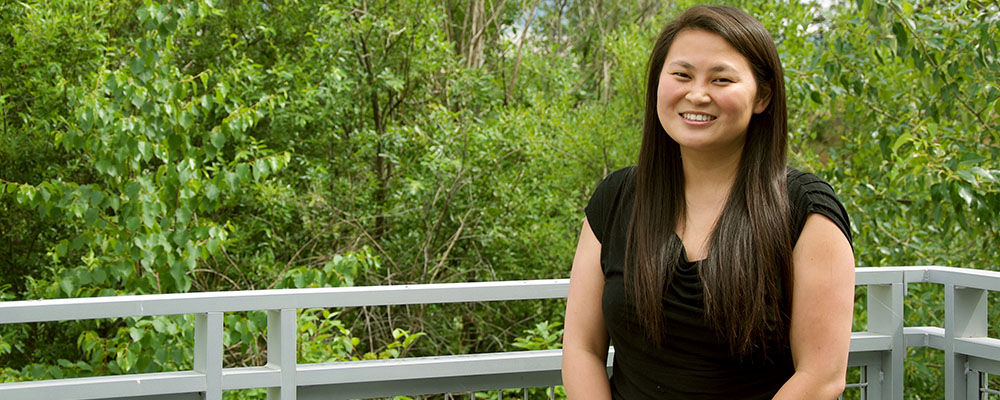
Congratulations to Camille Rousseau, our Doctoral Studies Outstanding Publication Award recipient!
QUESTION AND ANSWER WITH SESSION WITH Camille
What does receiving the award mean to you?
I am very grateful to receive this award in recognition of research conducted with colleagues from UBC Okanagan and Brock University. Receiving this award is a testimony of the strength of inter-institutional research collaborations the rich research they can generate. In this way, this award is also evidence of the wonderful support I received in conducting this research and it is a great reminder of the importance of fostering and nurturing research relationship.
What has your experience with the Okanagan School of Education been like?
As I reflect on my graduate student experience with the Okanagan School of Education (OSE), I feel a great deal of satisfaction and recognition. I have exclusively had positive interactions with the faculty and staff in the department. Moreover, the OSE provides ample opportunities for graduate students to be involved with the school. Personally, I have had the honour of participating in two search committees and of representing students at OSE department meetings and at the Graduate Student Advisory Council. In addition, although the OSE does not guarantee TA contracts to grad students, the school still provides TA contract opportunities for graduate students who wish to hone their teaching skills.
Finally, I work in the best research lab across Canadian institutions. The B.A.R.K. program is innovative and constantly forages ahead with cutting-edge research on canine-assisted intervention research. It is the largest on-campus canine-visitation program in Western Canada and it services unique populations including law enforcement personnel and children. I am so grateful to be able a part of it.
What is your research project?
The aim of this exploratory research was to capture the voice of dog handlers to better understand their experiences volunteering on a university campus. We also sought to provide preliminary insights into their well-being. Sixty dog-handler volunteers participated in this study. As is evidenced by participants’ insights, handlers are well attuned to the impact of volunteering on themselves and their therapy dog. Few reported challenges associated with volunteering, with the exception of scheduling conflicts and cultural barriers. Participants also reported motivations to continue volunteering related to the social benefits derived from volunteering. Further, they identified key behaviors therapy dogs should embody to participate in canine visitation programs.
What difference do you hope your research will make?
Dog handlers are the central stakeholder driving all canine-assisted intervention and their well-being holds implications for their ability to support the well-being of their clients. It is therefore essential to safeguard handlers’ well-being to maximize the retention of dog-handler teams and optimized program delivery. However, little is documented about this population and their experiences as volunteers. The profile of well-being presented in our research is foundational and provides pathways towards more comprehensive examinations of handler well-being.
What advice do you have for future graduate students?
I think it is important to really love an area of expertise. I would recommend that future grad students connect with supervisors that are conducting research they are interested in, and to participate in what’s happening on their campus even before pursuing graduate studies. Find what inspires you and get involved early! Current graduate students are also a great resource. Particularly ones who are already working in research labs that you are interested in joining as a graduate student.
More importantly, remember to practice self-compassion. As graduate students, we are constantly pushed to be competitive and to best ourselves. In this way, it seems disadvantageous to be kind to ourselves, but in reality, looking after ourselves should always be a priority over academic obligations and expectations.
Graduate Supervisor: Dr. John-Tyler Binfet